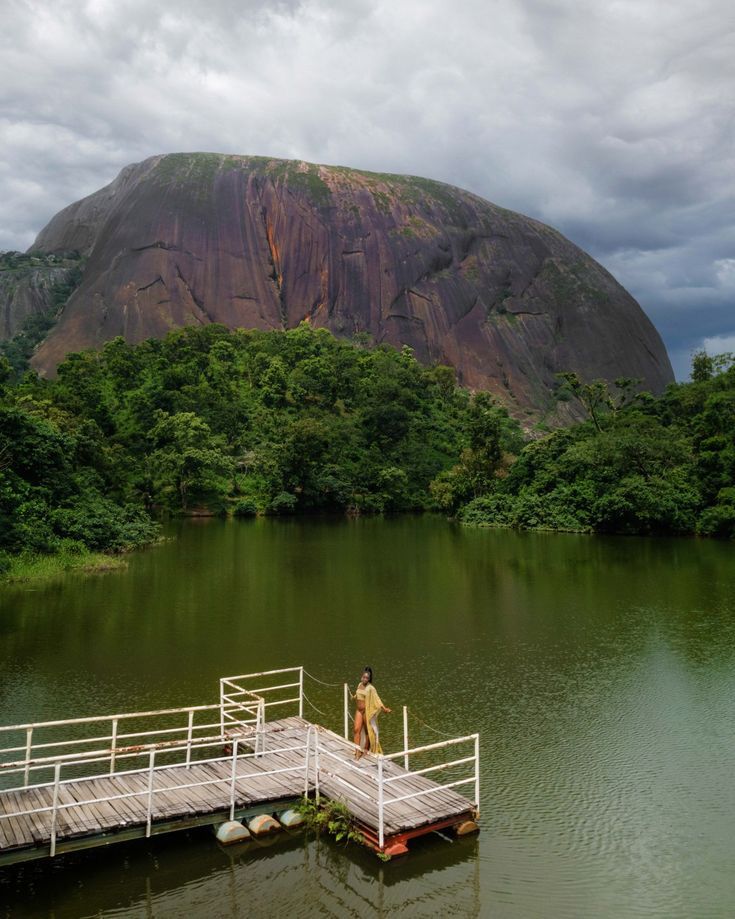Nigeria is a land of extraordinary beauty and biodiversity, with vibrant cities, lush rainforests, and diverse ecosystems. For nature lovers and adventurers, it offers a wealth of opportunities. That said, traveling responsibly is key to preserving the natural wonders and respecting local communities. So in this article, we’ll explore how to minimize your environmental impact while traveling in Nigeria by offering sustainable travel tips, wildlife conservation efforts, and cultural respect.
Traveling Sustainably in Nigeria
Use Public Transportation: Nigeria has an extensive network of buses, trains, and shared taxis. Opt for public transportation to reduce carbon emissions and ease traffic congestion.
Choose Eco-Friendly Accommodations: Many lodges and hotels in Nigeria are committed to eco-friendly practices. Look for accommodations with green certifications such as LEED or local sustainability awards.
Support Local Guides: When exploring Nigeria’s natural wonders, hire local guides who are well-versed in the environment. They can provide valuable insights and ensure minimal impact on the ecosystem.
Reduce Plastic Waste: Carry a reusable water bottle and shopping bag to minimize plastic waste. Water purification tablets or filters are handy for refilling your bottle with clean water.
Respect Wildlife: Keep a safe distance from wildlife, and never feed or disturb animals. Follow ethical wildlife viewing guidelines to protect the natural habitats and the creatures that call them home.
Minimizing Your Environmental Impact While Exploring Nigerian Wildlife

Stay on Designated Trails: When trekking through national parks or reserves, stick to designated trails to avoid disturbing local flora and fauna.
Dispose of Waste Properly: Use designated waste disposal facilities or carry out all your trash. Leave no trace of your visit in these fragile ecosystems.
Photograph Responsibly: When capturing the beauty of Nigerian wildlife, avoid using flashes or disturbing animals for the sake of a photo. Respect their natural behavior.
Choose Eco-Friendly Tours: Support tour operators that follow eco-friendly guidelines. They should prioritize the environment’s well-being over profit.
Learn About Local Conservation: Take the time to learn about local conservation efforts and how you can contribute. Many organizations in Nigeria work tirelessly to protect wildlife and ecosystems.
Supporting Local Conservation Efforts
Contribute to Local Conservation Organizations: Many local nonprofits in Nigeria are dedicated to preserving the environment. Contribute to these organizations or volunteer your time.
Participate in Conservation Projects: Some organizations offer opportunities for travelers to actively engage in conservation efforts, such as tree planting or wildlife monitoring.
Respect Regulations: Adhere to all park and reserve regulations. Pay entrance fees that support conservation and follow the guidelines provided.
Educate Yourself: Learn about the environmental issues facing Nigeria and the efforts being made to address them. This knowledge can inform your travel choices and support the right initiatives.
Respecting Local Cultures and Traditions

Dress Modestly: In many parts of Nigeria, modest clothing is appreciated. Be mindful of local dress codes, especially in rural areas and when visiting religious or traditional sites.
Learn Basic Phrases: Familiarize yourself with basic local phrases and greetings. This shows respect for the local culture and can enhance your travel experience.
Ask for Permission: Always seek permission before taking photographs of people, especially in remote or indigenous communities. Not everyone may be comfortable being photographed.
Respect Religious Practices: If visiting places of worship, follow local customs and respect the sanctity of the space. Remove your shoes and dress appropriately, as required.
Support Local Economies: Buy local products and handicrafts as a way to support local communities. This provides economic benefits and encourages sustainable practices.
Traveling in Nigeria can be a transformative experience. By following these sustainable travel tips, minimizing your environmental impact, and respecting local cultures and traditions, you can ensure that your journey leaves a positive mark on both the environment and the communities you visit. Nigeria’s natural beauty and cultural richness deserve to be cherished and preserved for future generations to enjoy.

